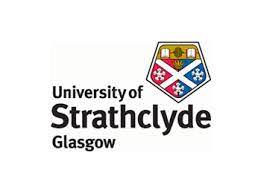University of Strathclyde: £1.3M grant to develop pioneering superconducting electrical machines for zero emission aviation
A Strathclyde researcher has been awarded a prestigious European Research Council starting grant for a five-year project to electrify aircraft using a novel superconducting machine technology.
Professor Min Zhang, from the Applied Superconductivity Laboratory, will focus on three ground-breaking technologies to enable the use of high temperature superconductors for electrical propulsion motors with high performance and reliability.
Critical temperature
A superconductor is a substance which offers no resistance to the electric current when it becomes colder than a critical temperature
By the end of the “Superconducting Electrical Machines for Zero Emission Aviation”, or SUPERMAN, project, a 100 kW demonstrating motor will be developed and tested for aviation propulsion systems – the machine that produces thrust to push an object forward.
Professor Zhang said:
This project will close the knowledge gap between superconducting science and electrical engineering, enabling radical changes in the existing superconducting machine technology to meet aviation needs.
Professor Zhang previously received a five-year Royal Academy of Engineering Research Fellowship in which she and her team developed essential numerical and experimental tools to enable the study of fully superconducting machines.
She is also leading a superconducting propulsion motor project in collaboration with Airbus, with a mission to develop a novel 200 kW fully superconducting propulsion motor and its cryogenic drive system by end of 2024.
Giant leap
Explaining the new dimension that the ERC project will bring into her existing research, Professor Zhang added: “My existing research focuses on the feasibility study of superconducting propulsion machines, and the new ERC project will take a giant leap by directly addressing the reliability and safety requirements for aviation, while achieving high power density and high efficiency.”
More than 400 researchers at universities and research centres in 26 countries across Europe have won Starting Grant funding worth a total of more than £550M. The funding is part of the Horizon Europe programme.
It will help excellent younger scientists, who have two to seven years’ experience after their PhDs, to launch their own projects, form their teams and pursue their most promising ideas.
The grants will be invested in scientific projects spanning all disciplines of research and will create more than 2,000 jobs for postdoctoral fellows, PhD students, and other staff at host institutions.
Mariya Gabriel, European Commissioner for Innovation, Research, Culture, Education and Youth, said: “These new ERC laureates bring a remarkable wealth of scientific ideas, they will further our knowledge and some already have practical applications in sight. I wish them all the best of luck with their explorations.”
President of the European Research Council, Professor Maria Leptin said: “We must encourage young researchers who are led by sheer curiosity to go after their most ambitious scientific ideas. Investing in them and their frontier research is investing in our future.”
The ERC, set up by the European Union in 2007, is a European funding organisation for frontier research and funds creative researchers of any nationality and age, to run projects based across Europe.
Strathclyde is a member of the UK Aerospace Research Consortium along with 10 other universities, which offers Government, industry and international partners a central co-ordinated research platform, access to national research facilities, and future skills development.

